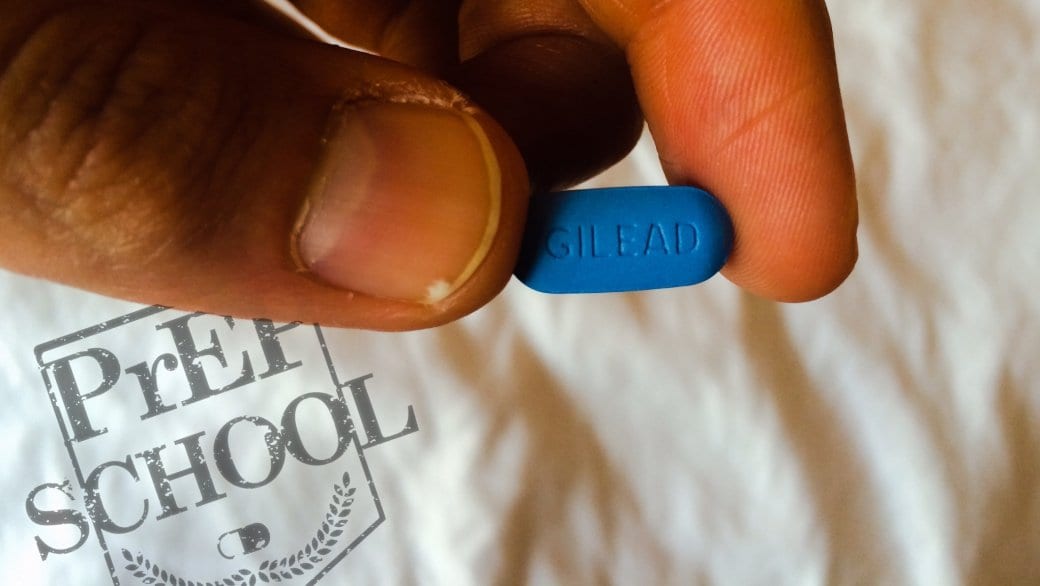PrEP School runs every other Monday on Daily Xtra. Columnist Mike Miksche explores and navigates the world of sex and PrEP.
After two years of mulling it over, I finally decided to quit my day job and become a freelancer. I had a comfortable corporate gig with a nice salary and benefits — it was difficult to walk away from. But the most difficult part about leaving was losing my drug plan, because it meant that I’d have to stop taking pre-exposure prophylaxis (PrEP). My plan covered 90 percent of the cost, so I was still paying a more manageable $108 per month. Now that I’ve had a taste of how powerful this drug is, it seems unjust that I can no longer protect myself simply because I can’t afford it.
My doctor was kind enough to prescribe a three-month supply of Truvada before my benefits ran out. I need to make this last, I thought to myself.
According to the iPrEx Open-Label Extension study, PrEP could still be effective if taken four times a week. I also knew there was some investigation as to whether you could take the drug before and after sex, intermittently, and still maintain its effectiveness. They seemed like possible ways for me to conserve my stash.
When I asked my doctor about these strategies, he confirmed that there were studies proving these theories. But he warned that if I were to seroconvert while doing this, then there was a chance that I could become resistant to Truvada. That’s a problem, because Truvada is also used in combination with another drug for many HIV-positive people. I didn’t want to put my health at risk, so I concluded that I would stop taking PrEP altogether.
It’s funny to think back on how reluctant I had been at first to take Truvada. I had been concerned about the health implications of consuming a pill daily, but I’ve been on it for close to a year now and my health hasn’t changed. There’s a lot I still don’t know about taking Truvada as PrEP, but that’s all the more reason to keep myself up to date on the topic. After all, what we do know so far is pretty damn good.
Once I started using Truvada, I found that it improved my sex life significantly. I’d always been worried about contracting HIV during oral sex when I had a sore in my mouth — I don’t even think about that anymore. I was also concerned about slipping up during drunken sex, which does still happen on occasion, despite being 35 years old. Whenever I slipped, I’d be fearful for the three months following. Now, I simply enjoy the sex for what it is, even if it’s in a drunken haze. This is why PrEP works for me.
I thought I’d eventually work my way up to bareback sex, but six months into my PrEP treatment I decided to stick with condoms in order to protect myself against other sexually transmitted infections. I don’t tell people right away that I’m on PrEP because there’s been an expectation that I’m going to bareback, which has led to some awkward situations. Plus, I don’t believe that I need to explain myself to anybody. We all have different comfort levels, and this is mine.
Come March, when I have to stop taking Truvada, I’m worried about having to rely on condoms alone. There’s no doubt that they’re highly effective, but I’ve had five break during my adult life. Each incident had caused me such anxiety that I soon found it difficult to relax during penetration. I finally avoided fucking altogether when it came to one-night stands. Without PrEP, I fear that I won’t be able to enjoy sex the way I can now, simply because of the financial cost. I keep asking myself how greed can triumph over health, especially when it comes to those that are at an even higher risk than myself. We have a method to decrease transmission rates and not everyone has access to it. That’s just wrong.
PrEP has a lot of baggage, and I’ll delve into that in future columns. Nothing is perfect, nor should we expect it to be — that’s a crucial thing to understand if you decide to start taking the drug. I’ve witnessed vicious debates that have made me feel as though I must choose: I must be either for it or against it, but I think it’s healthy to truly think critically about both sides to accurately advocate its use. That’s how informed conversations begin, and we need those conversations to make these drugs more accessible in the future.

 Why you can trust Xtra
Why you can trust Xtra


